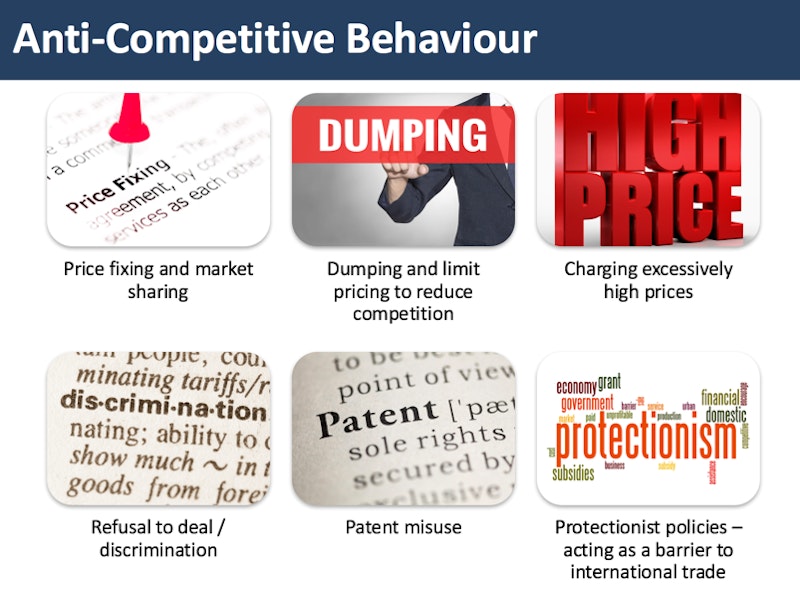Study Notes
Monopoly and Anti-Competitive Behaviour - Key Definitions
- Level:
- A-Level
- Board:
- AQA, Edexcel, OCR, IB
Last updated 22 Mar 2021
What is meant by anti-competitive behaviour?
Here are some key concepts defined on the topic of monopoly power and forms of anti competitive behaviour

Anti-competitive behaviour
Strategies designed to limit the degree of competition inside a market and reinforce the monopoly power of established businesses
Collusion
Collusion takes place when rival companies cooperate for their mutual benefit. When two or more parties act together to influence production and/or price levels, thus preventing fair competition. Common in an oligopoly / duopoly
Complex monopoly
A complex monopoly exists if at least one quarter (25%) of the market is in the hands of one or a group of suppliers who, deliberately or not, act in a way designed to reduce competitive pressures within a market
Horizontal collusion
Where there is agreement between firms at the same stage of the production process to charge prices above the competitive level
Predatory pricing
Setting an artificially low price for a product in order to drive away competition - deemed to be illegal by the UK and European competition authorities
Procurement collusion
Where companies illegally bid for large contracts by rigging bids to decide which one of them gets the contract in advance.
Rent seeking behaviour
Behaviour by producers in a market that improves the welfare of one but at the expense of another. A feature of monopoly and oligopoly
Tacit collusion
Where firms undertake actions that are likely to minimize a competitive response, e.g. avoiding price cutting or not attacking each other's market. Tacit collusions is when firms co-operate but not formally, e.g. price leadership, or quiet or implied co-operation, secret, unspoken cooperation
You might also like
X-Inefficiency
Study Notes
Barriers to Entry
Teaching PowerPoints
Exam Answer: Predatory Pricing
Study Notes

Royal Mail losing market share in the contestable parcels industry
29th December 2023
Daily Email Updates
Subscribe to our daily digest and get the day’s content delivered fresh to your inbox every morning at 7am.
Signup for emails
